Saudi Arabia Rejects 6,500 Hajj Pilgrims Who Received Iranian Vaccines
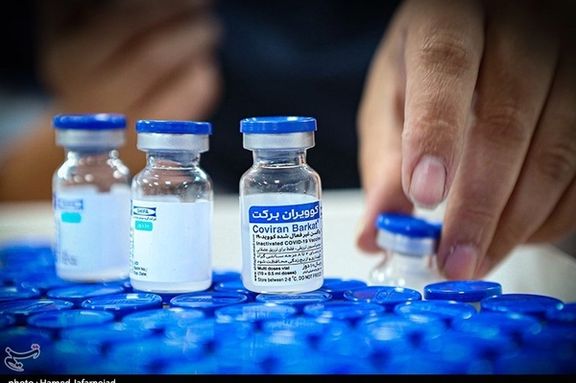
Saudi Arabia has refused to accept 6,500 Iranian Hajj pilgrims who had been vaccinated against coronavirus with Iranian-made Barekat vaccines.

Saudi Arabia has refused to accept 6,500 Iranian Hajj pilgrims who had been vaccinated against coronavirus with Iranian-made Barekat vaccines.
According to Iranian state-owned paper JameJam, they all had to be vaccinated once again with one of the vaccines approved by Riyadh.
After two years of pared-down pilgrimage due to Covid-19 pandemic restrictions, this year Saudi authorities will permit one million Muslims from inside and outside the country to participate. About 40,000 Iranians are set to attend.
Earlier in April, Iran’s national carrier, Iran Air, announced that Iraq does not allow entry to visitors who have received Iranian-made Covid-19 vaccines.
Iraq, with a population of over 40 million, vaccinated 18 percent of its population, short of a 40 percent target set last year by the World Health Organization for January 2022, but has reported about 25,000 deaths. Iran has vaccinated 70 percent and has reported about 141,000 deaths.
Iran has approved at least six homegrown vaccines for production, although some have not completed trials. Most of the 147 million doses administered in Iran are Sinopharm Chinese vaccines, recognized by the World Health Organization.
In January 2021, Iran’s Supreme Leader Ali Khamenei banned the purchase of American and British vaccines, and the state began pushing for homegrown variants.
In September 2021, more controversy ensued when a former member of parliament alleged that Barakat, the most well-connected vaccine developer received one billion dollars from the state in advance and delivered only a fraction of the quantity promised.
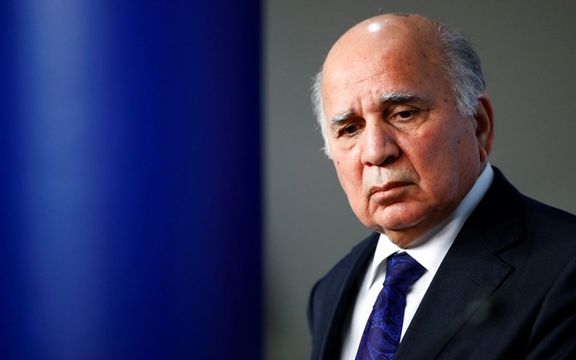
Iraqi Foreign Minister Fuad Hussein has criticized the Islamic Republic of Iran's interference in Iraq's internal affairs, saying Baghdad's tone has changed vis-à-vis Tehran.
In an interview with the Egyptian Alghad TV channel aired on Sunday, he said that Tehran has begun to hear a new language from Baghdad, which did not exist before, noting that Iranian interference in Iraq is “unacceptable."
“These problems regarding Iranian interference whether political or otherwise, we have started talking with the Iranian side differently,” he added.
The Iraqi diplomat said Baghdad’s ties with Iran have passed a level of silence and reached a level of frankness.
“We have told our Iranian brothers that we are geographical neighbors and that will stay...therefore we need cooperation, we do not need interference from Iran. Interference in Iraqi affairs cannot be accepted from any state,” Hussein said.
Lawmakers from the Sadrist bloc in Iraq's parliament resigned on Sunday after their leader, powerful Shiite Muslim cleric Moqtada al-Sadr, asked them to step down amid a prolonged stalemate over forming a government without former Prime Minister Nouri al-Maliki and his Iran-aligned coalition.
On Saturday, Hussein said that Iraq had submitted a formal complaint to Iran for its aggressive behaviors toward Iraq and the Kurdistan Autonomous Region, and denied Iran's allegations that the Israeli Mossad is present in Erbil, stressing that Iran must refrain from attacks on the capital of Iraqi Kurdistan.
“We find it strange that Iran chose the Kurdistan region to respond to Israel,” he said.
In March, Iran fired missiles at Erbil. No one was killed but missiles did damage to some residential buildings. Iran claimed it used 12 ballistic missiles in that attack and targeted an Israeli intelligence center.
Earlier in the day, Iran’s foreign ministry spokesman dodged questions about Tehran’s involvement in last week’s drone attack on Erbil which injured three civilians.
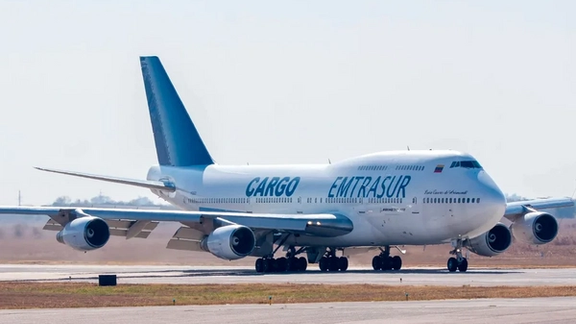
Iran has denied that a Boeing 747 impounded in Argentina over links with the Revolutionary Guard belongs to any Iranian aviation company.
Iranian Foreign Ministry spokesman Saeed Khatibzadeh said at a weekly press conference on Monday that the grounded plane operating for the cargo division of Venezuelan national carrier Conviasa does not belong to Iran’s Mahan Airlines. The United States sanctioned the airline in 2008 for its links to Tehran’s extraterritorial intelligence and secret ops outfit, the Quds (Qods) Force.
Khatibzadeh, however, confirmed that some of the crew on the plane – which was seized upon arrival in Buenos Aires on June 6 -- were Iranians, noting that "The plane has been sold to Venezuelan airlines for more than a year and its crew is not entirely Iranian."
Iran’s aviation chief Mohammad Mohammadi Bakhsh said on Sunday that the Iranian crew on the plane were instructors working as part of an aviation deal between Iran and Venezuela, and that the seized aircraft has not been on Mahan Air’s register.
Argentine lower-house lawmaker and member of the country's Congressional Intelligence Commission Gerardo Milman, who has raised attention to the case in recent days, presented a complaint to a judge asking to fingerprint the crew and share the information with the Federal Intelligence Agency, saying that "Our information is that this is a plane that has come to conduct intelligence in Argentina."
Among the Iranians on board, is Gholamreza Ghasemi, who is a member of the IRGC and a former board member of Fars Air Qeshm, the Iranian airline that is accused of transporting weapons for Hezbollah covering up as civilian jets. He is reportedly a relative of current Interior Minister Ahmad Vahidi, whose assignment by President Ebrahim Raisi triggered condemnation from Argentina given his suspected role in the 1994 AMIA bombing that killed 85 people and injured over 300.
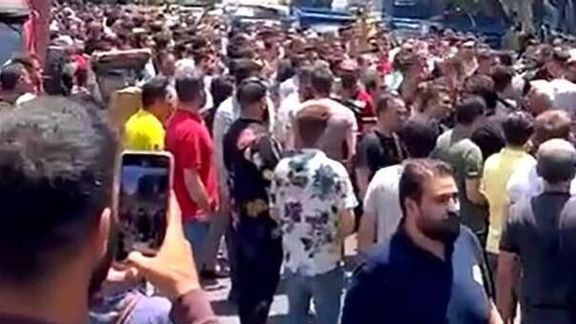
As protests in Iran spread to Tehran on Sunday and continued on Monday, criticism of the government's economic and foreign policies intensified in the media.
Mehdi Pazouki, one of the Iranian economists who had warned President Ebrahim Raisi on Saturday that the underlying cause of the ongoing crisis is bad governance, and warned Raisi to introduce deep changes or wait for further chaos, said in an interview with Didban Iran website that his administration is the weakest government in Iran's history.
Pazouki criticized Raisi for forming a government by choosing his ministers and aides from among the members of a certain clan, such as appointing a politician [Ali Bagheri Kani] as Iran's chief nuclear negotiator who has always been against a nuclear agreement with the West. He also argued that Raisi has no economic program for the country although he had claimed during his election campaign to have a 7,000-page plan.
Like many other critics, Pazouki also maintained that Raisi's cabinet continues to blame the previous government for the country's problems to cover up its own inefficiency. Mentioning examples from the performance of Labor Minister Hojjat Abdolmaleki, Pazouki said that the minister's counter-productive performance in the area of wages and pensions has led to more unemployment and dissent.
Giving key jobs to non-experts, failing to prevent the effective devaluation of the national currency, being unable to do anything about rising food prices and wasting hefty budgets on “useless organizations” such as The Supreme Council of Cultural Revolution are among the other negative points of the Raisi administration, Pazouki added.
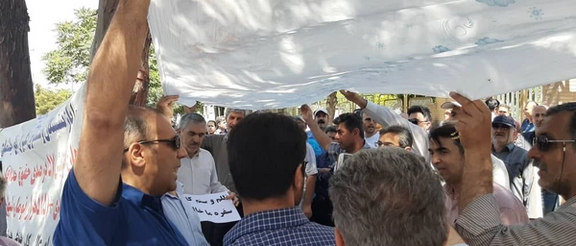
Meanwhile, former vice president Mostafa Hashemi Taba told reporters that the country's situation is getting worse on a daily basis, adding that it was evident from day one that Raisi was not able to stand by the promises he made during his election campaign. Hashemi Taba further said, that those promises were so extravagant that not only Raisi, but no other president could have accomplished them.
Meanwhile, interviews with fuel distribution officials indicated that there is a growing concern among consumers about an imminent rise in fuel prices. Some media in Iran have revealed that customers' gas rationing cards are being recalled and collected at some gas stations and this has given further rise to concerns about possible new rations and new prices. Although officials have tried to deny the rumors, Iranians generally believe based on previous experience that whatever officials deny today will come out to be true the next day.
Reformist political analyst Ahmad Naqibzadeh told Didban Iran that it appears officials are adamant to continue policies that have proven to be ineffective in the past. He added that they are not even willing to correct their wrong policies and call their critics the enemies of the state.
Criticism of Raisi's foreign policy is mainly about his government's failure to successfully carry out the nuclear negotiations in Vienna. Iranian lawmaker Zabihollah Azami said in an interview with Rouydad24 website on Sunday that the government should be held accountable for the opportunities it missed in the Vienna negotiations.
Iranian businesses and economists hoped that the negotiations would lead to the lifting of US sanctions and improving the battered economy, but critics now say the government's mistakes have led to the suspension of the talks since March.
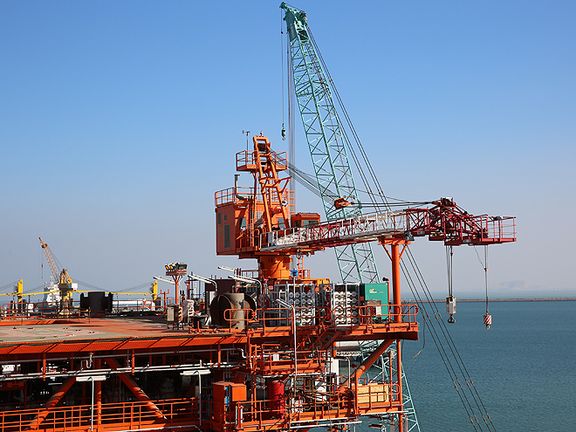
Qatar’s state-owned petroleum company has signed a deal with France’s TotalEnergies for developing its South Pars/North Dome Gas-Condensate field shared with Iran.
QatarEnergy, which announced Total as its first partner at the nearly $30 billion expansion project in the Persian Gulf on Sunday, added that more partners would be announced in the coming days. The expansion plan includes six LNG trains that will ramp up Qatar’s liquefaction capacity from 77 million tons per annum (mtpa) to 126 mtpa by 2027.
The news comes as Europe tries to replace Russian gas with supplies from other sources, and has directly courted Qatar as a major producer.
The French oil giant officially left Iran – along with Royal Dutch Shell, Russia’s Lukoil and Zarubezhneft, Italy’s Eni, Austrian group OMV and others – and abandoned a similar deal to develop the world's largest liquefied natural gas (LNG) project in August 2018, after former US president Donald Trump withdrew from the 2015 nuclear deal with Iran.
China National Petroleum Corp (CNPC) replaced Total taking over Total’s 50.1 percent stake, but it also suspended its investment in South Pars in 2018 in response to US pressure.
With lack of investment and technology, Iran’s gas production in the Persian Gulf is falling and currently inadequate even to cover rising domestic demand.
In February, the current oil minister Javad Owji said that “many major companies” have sent emails to the ministry and initiated discussions to participate in expanding Iran’s part of the gas field.
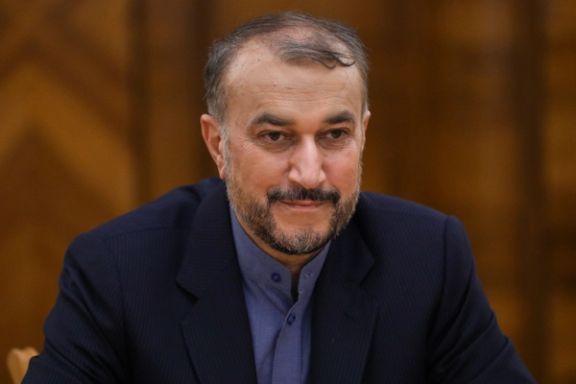
Iran’s foreign minister says Tehran is resisting excessive demands presented “by the other side” in talks to restore the 2015 nuclear deal that have stalled since March.
Hossein Amir-Abdollahian made the remarks on Sunday after attending a session of the Parliament’s Committee on National Security and Foreign Policy to brief lawmakers about a resolution passed by the board of governors of the International Atomic Energy Agency (IAEA) to condemn lack of cooperation by the Islamic Republic.
“Every time that the opposite side put forth excessive demands during the [Vienna talks], we used the country’s own tools and power, so that they would understand that the interests and welfare of the Iranian nation were important to us,” he said without elaborating on the tools, but he was probably referring to the government’s decision to reduce monitoring access to the UN nuclear watchdog.
Iran told the IAEA it plans to remove more monitoring equipment after the 35-member IAEA board Wednesday passed the resolution. Tehran says it intends to maintain a basic level of monitoring and inspectors’ access as required under the Nuclear Non-Proliferation Treaty (NPT).
In a statement issued by the Iranian parliament on Sunday, 260 lawmakers slammed the IAEA's “excessive, politically-motivated measure,” saying the resolution proves that the agency and its director general have lost all their technical credibility, in reference to Rafael Grossi’s recent visit to Israel.
On Friday, all Friday Prayer Imams in Iran, who are representatives of the Supreme Leader, backed the decision to reduce relations with the IAEA.